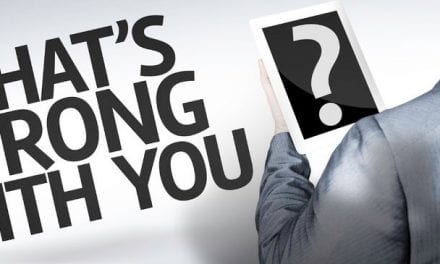A look at CCRC’s as the ask residents for donations
Jack Cumming is Director of Research for the National Continuing Care Residents Association. He lives with his wife in a California CCRC. We begin here a three part series on philanthropy, inspired by the recent LeadingAge California meeting.
Not long ago my wife and I attended the LeadingAge California Conference in Palm Springs. One of the delights was to meet in person Steve Moran, whom we’ve long known as a gifted thinker and writer. Steve asked if I would submit a column for his blog. For several reasons I decided to address philanthropy.
Why Philanthropy Matters
- There was a philanthropy “track” at the conference suggesting that giving is a significant concern for many attendees.
- The CEO of a major provider organization said awhile back that he and his organization measure the organization’s effectiveness by the amount of donations they can attract. His point was that donations are a measure of public trust in an organization.
- Third, my wife and I are at a stage of life in which we have to consider how best to use our life’s material accumulations when they are no longer serviceable for us… in short after our demise. In pursuit of that quest for suitable gifting opportunities we have become active donors already.
Eavesdropping
A chance encounter with one of the philanthropy track sessions brought the topic to the forefront of my consciousness. Monday was a light day, intended for arrivals, with intensive pre-conference teaching sessions, followed late in the afternoon by the Opening General Session. Nestled between the teaching and the opening was the lone session, “The Heart and Soul of Philanthropy.” Attracted by curiosity, I wandered into the room and sat apart in seats that were arranged as though intended for an audience. The participants were gathered in the front in a square configuration of tables facing each other to foster dialogue. I was an eavesdropper. There were several facilitators. I didn’t pay too much attention to affiliations so I can’t say who was who or how they were chosen. The feeling at the meeting was similar to what I’ve encountered in past gatherings of life insurance salespeople brainstorming how best to sell their products to a somewhat reluctant clientele. It soon became evident to me that most market-based senior housing providers… at least nonprofit providers, have a separate charitable foundation, led by one or more foundation executives charged with beating the bushes to raise money and to encourage donations from residents. That defined the character of the meeting. They asked each other, what do you do, and what might we all do, to better connect with donors and to draw more money to our philanthropic purposes?
What was missing? . . .
Missing were the donors themselves. I felt rather strange sitting listening, though no one objected to my presence nor asked why I was there. I sat in the unoccupied section of the room. And that apartness was appropriate. I represented the people whose generosity these people sought to unlock. It was their job, their career, their livelihood to persuade other people, predominantly the older people living in their communities, and their families, to donate. They wanted to do it right. They wanted to do it professionally. They had some notions of what was needed. It soon became evident that there is a well-established fundraising industry with a set of preconceptions about how to conduct a campaign and how to recognize donors. Many of those present were trained and expert in those preconceptions. In fairness, at this point, having mentioned the absence of donors from this opening session, I should pause to add that later in the week, at another session on the philanthropy track, one provider organization hosted a panel with four resident donor representatives. That was telling and it was both informative and constructive to listen to the perspectives of those donors.
Wealth Can Become A Burden
The first insight that I would share is one that never surfaced during the discussion. Money can be a burden for people who have been financially successful and who want to use their success for good both during their lives and afterwards. You may have heard the famous quote attributed to Andrew Carnegie (“When Andrew Carnegie died, they discovered a sheet of paper upon which he had written one of the major goals of his life: to spend the first half of his life accumulating money and to spend the last half of his life giving it all away. And he did!” — Jim Rohn, motivational speaker) but you, perhaps, haven’t heard what Carl E. Touhey of Albany, NY wrote to his college classmates at their 25th reunion in 1964. “The climb to financial security and opulence was fun and rewarding,” he wrote, “But now what?” Carl Touhey died recently and his commitment to others is evident in the Albany Medical Center, the College of St. Rose, the Albany Symphony, and the Touhey Homeownership Foundation. You may be wondering why that wealth wasn’t just left to the next generation, and the answers to that can be as numerous as the number of families who are faced with the challenges of wealth. The most compelling reason though appeared in a Fortune magazine article on Warren Buffett. “Says he: ‘My kids are going to carve out their own place in this world, and they know I’m for them whatever they want to do.’ But he believes that setting up his heirs with ‘a lifetime supply of food stamps just because they came out of the right womb’ can be ‘harmful’ for them and is ‘an antisocial act.’” People of wealth tend to be people of conscience who want to serve the public good. Not only did John D. Rockefeller build a company in an era before electricity and automobiles, a company that made kerosene lighting affordable for everyone, replacing candlelight for evening endeavors, but he later used his wealth to found a great university, The University of Chicago, and to develop scientific medicine through the Rockefeller Institute. John D. Rockefeller made a difference. Jack Cummings This is Part 1 of a 3 part series: Next up “The Givers” If you like this article (or even if you don’t) it would be a great honor to have you subscribe to our mailing list HERE









What a breath of fresh air to read Jack Cummings’ piece on CCRC residents as donors, and I am looking forward to the next installments. Done right, donations flow from grateful residents who feel that the organization has enhanced their experience of aging. But I have also heard residents being obliquely informed that the reserves to care for them (if they outlive their finances) are depleted, and must be replenished by additional donations. So methods in the field can vary from sublime to unprofessional.
Hopefully this delayed question isn’t too late for others to respond to …I’m looking for clarification from the Foundation Managers and/or accountants out there, regarding something I just learned about the non-refundable portion of my hefty entrance fee for a CCRC. If it is too late, I’ll re-ask this when we get the next installment on this topic.
I just found out that the non-refundable percentage of my entrance fee is given to the community’s Foundation “for future benevolent care.” I never rec’d an acknowledgment of this approx $27,300 donation from the Foundation when I paid the large Entrance Fee to become a resident in 2012. I’m asking for an acknowledgment now.
My questions: wouldn’t this be considered a donation on my part? Shouldn’t I be able to use it as a charitable contribution for my 2012 tax return? It may be worth an amended return. I’d appreciate expert comments. Thanks very much.